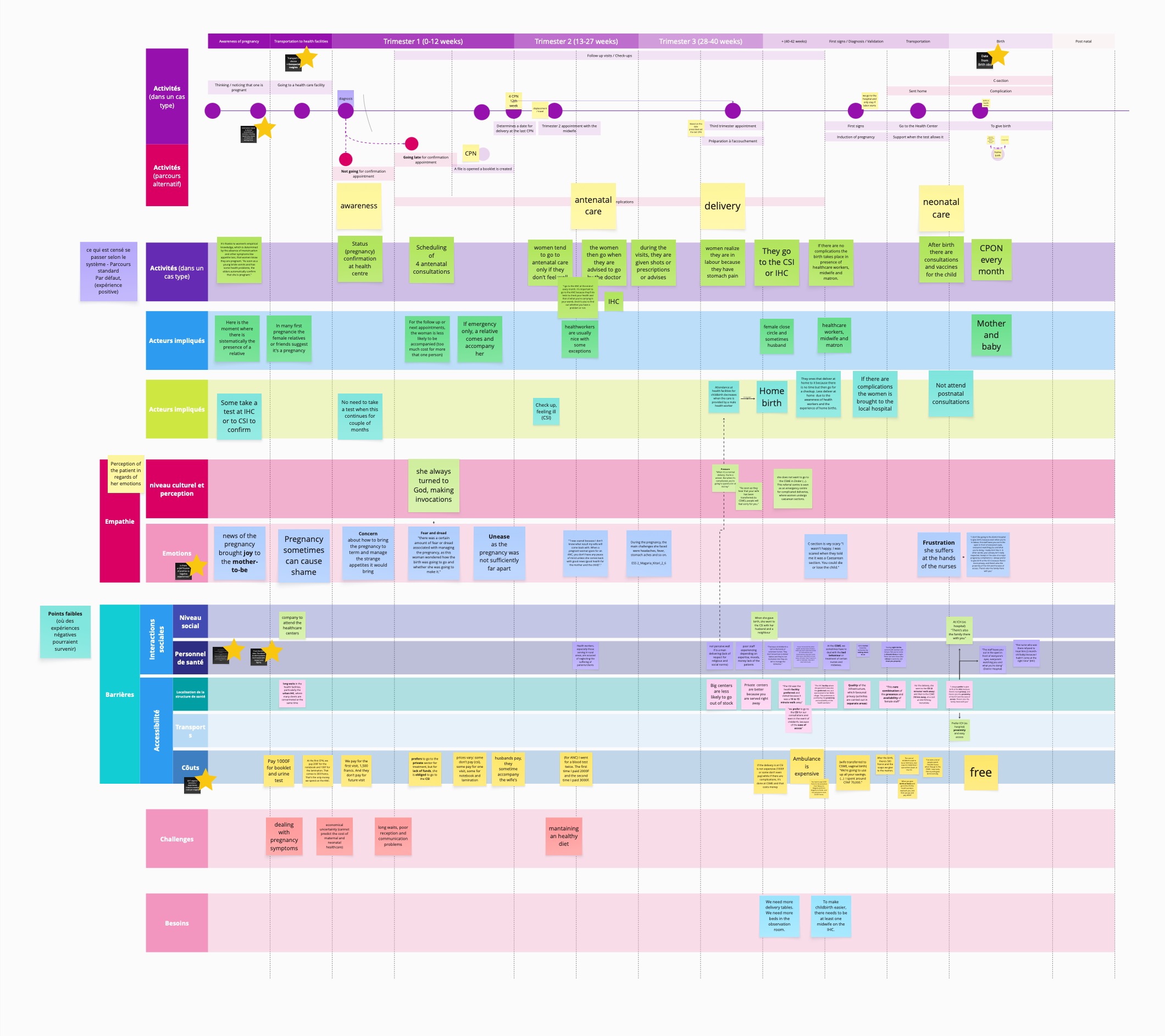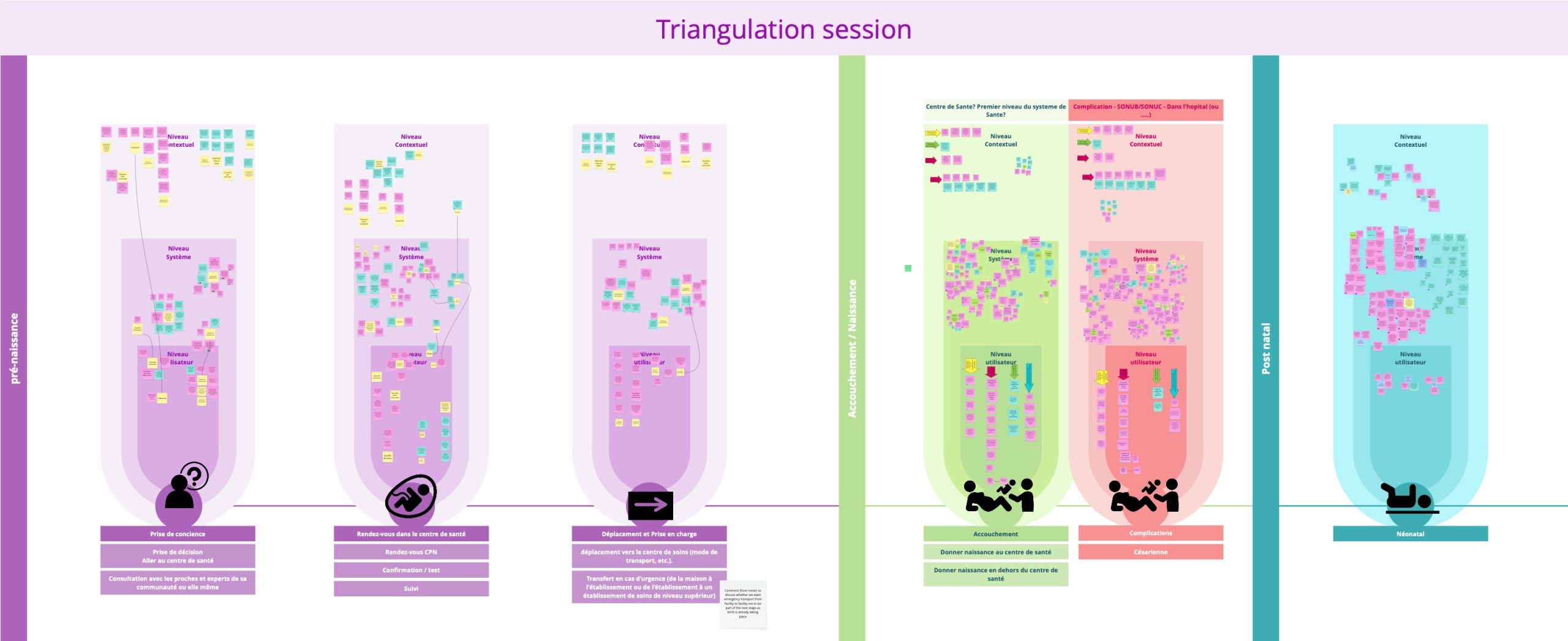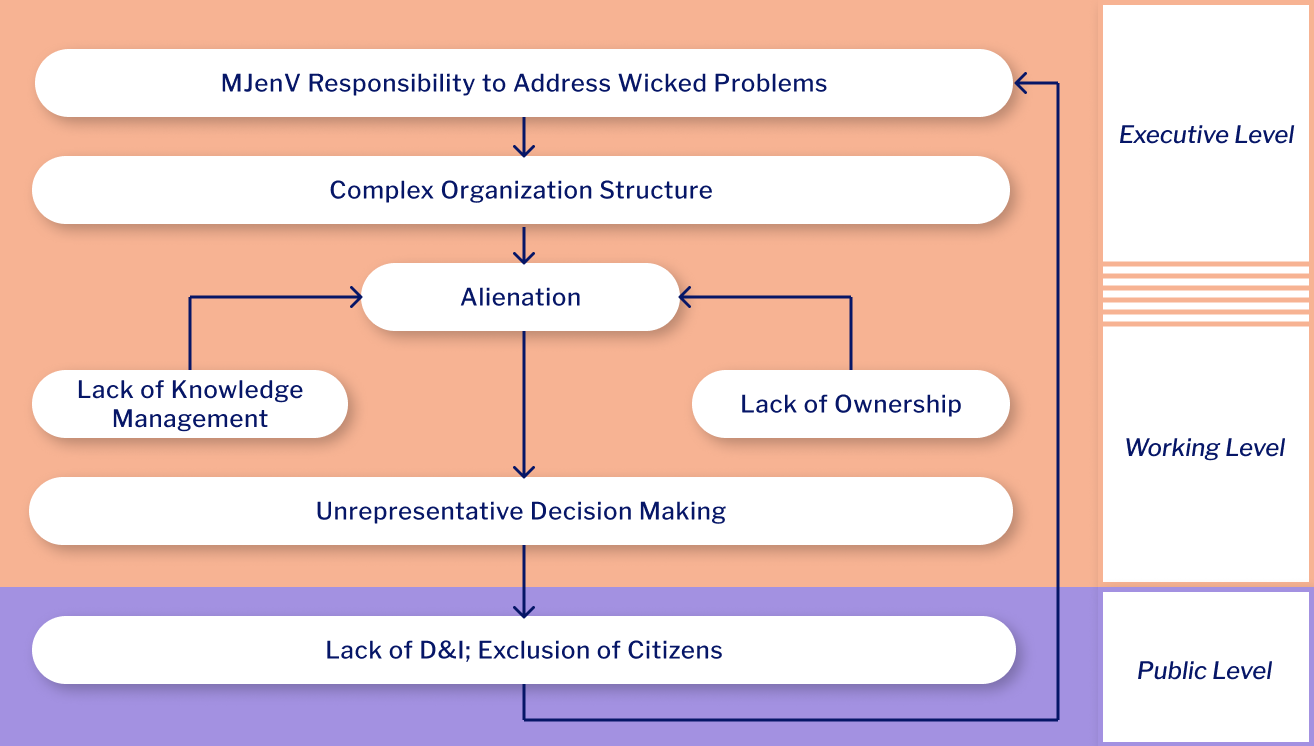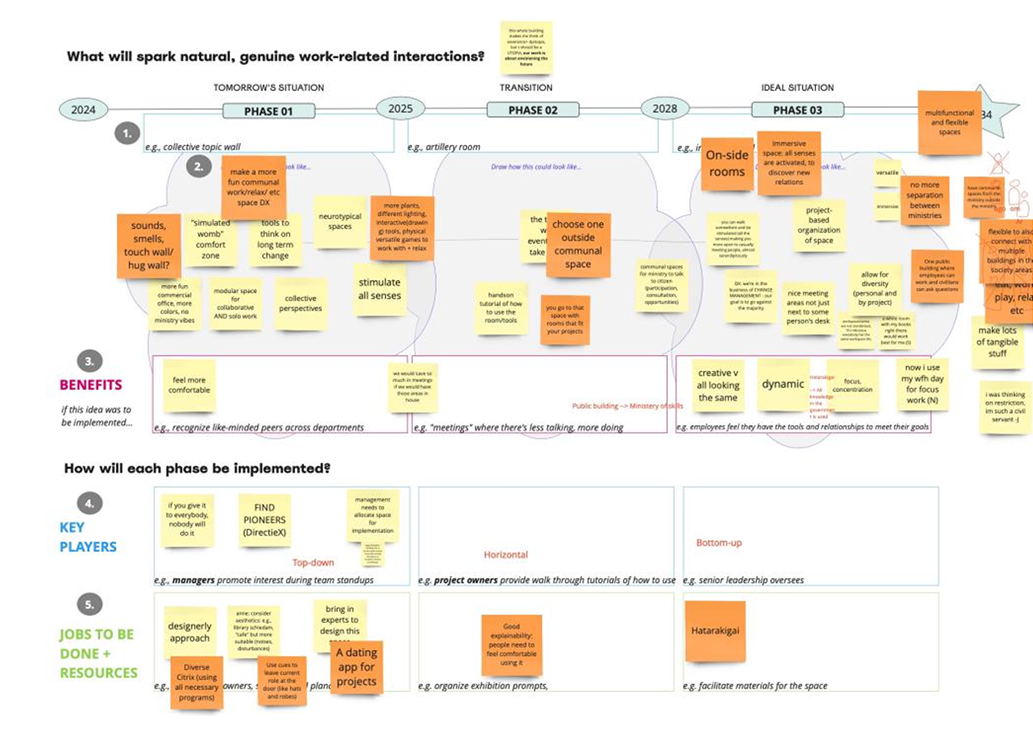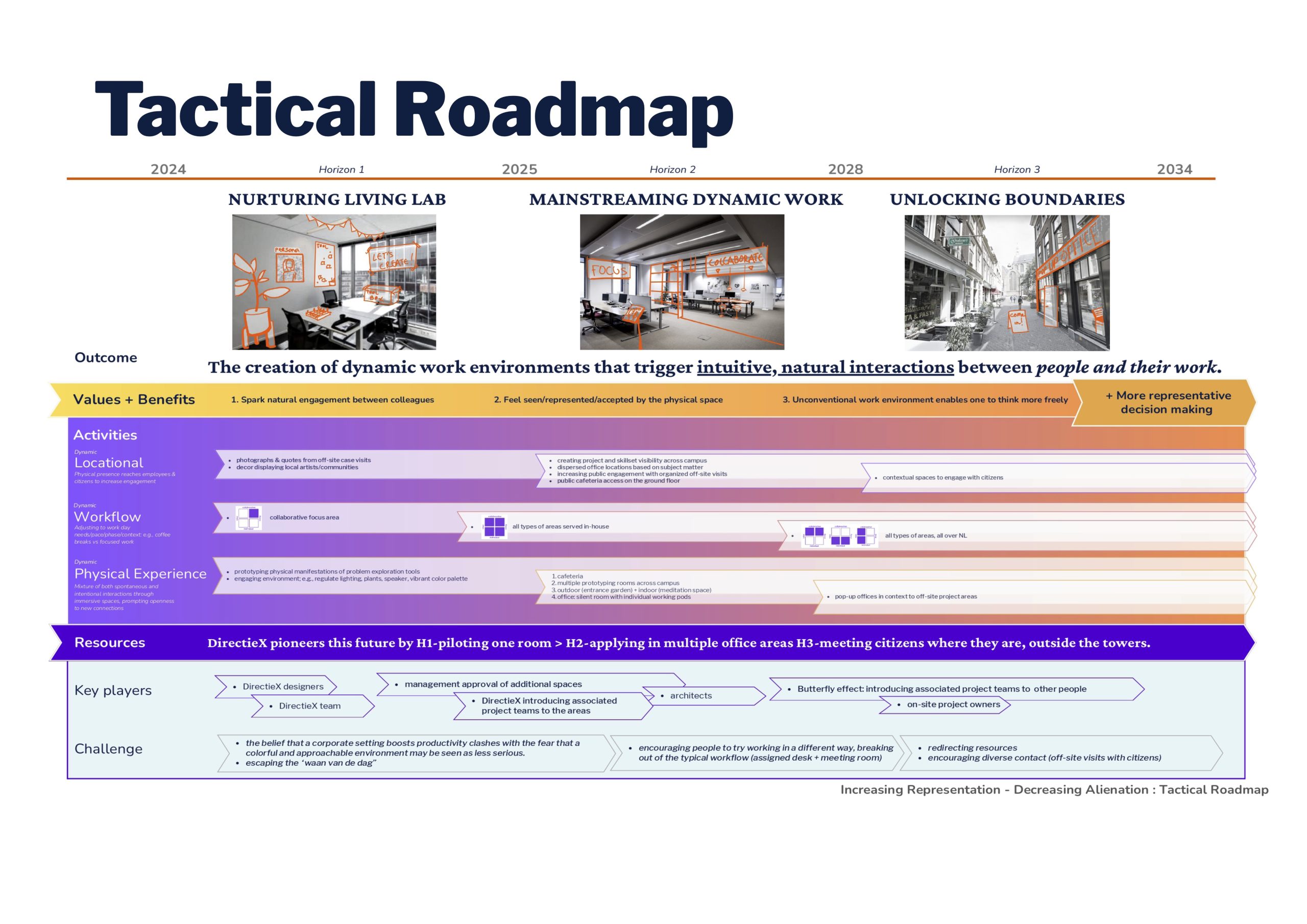👋 Hi!
I’m Inés Bernal and this is my portfolio.
It reflects my practice as a service and strategic designer, developed through work in contexts where challenges are multi layered and not fully defined from the start.
The projects below show how I approach my work, drawing on qualitative research, careful framing, collaboration and judgment, with a strategic lens that values realism over quick wins.
Project 1


Master Thesis — Strategic and Systemic Design
Fall 2024 to Spring 2025, 25 weeks

Access full report here.
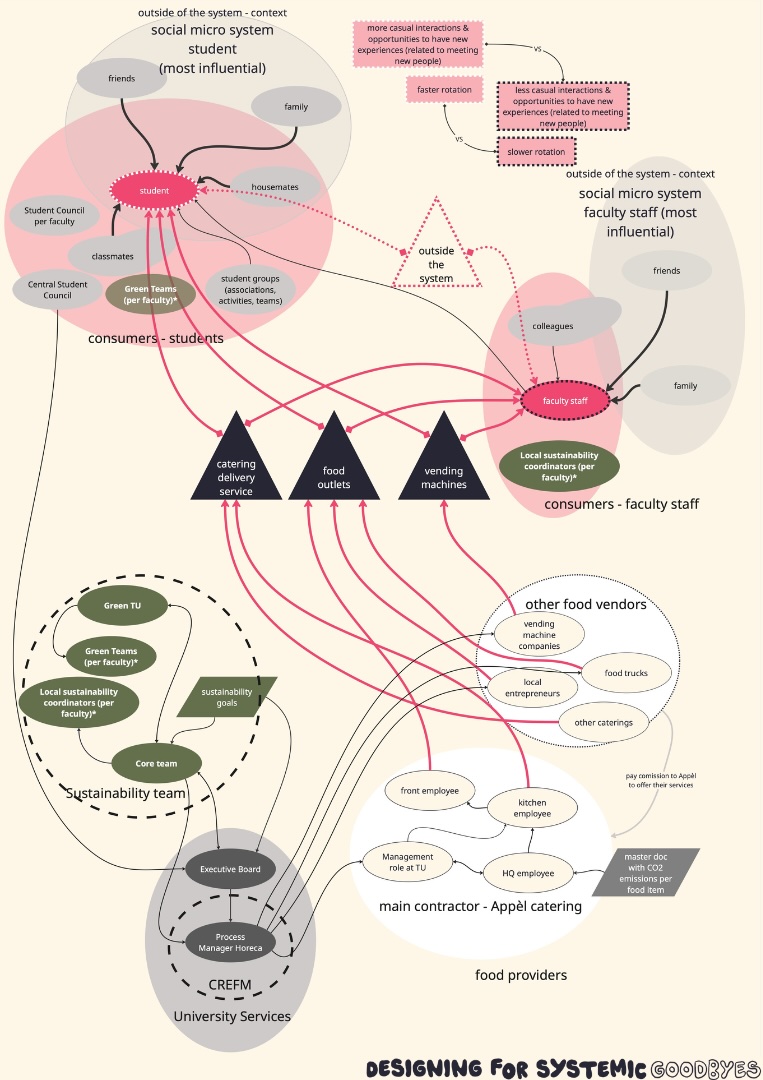

Framing and desk research
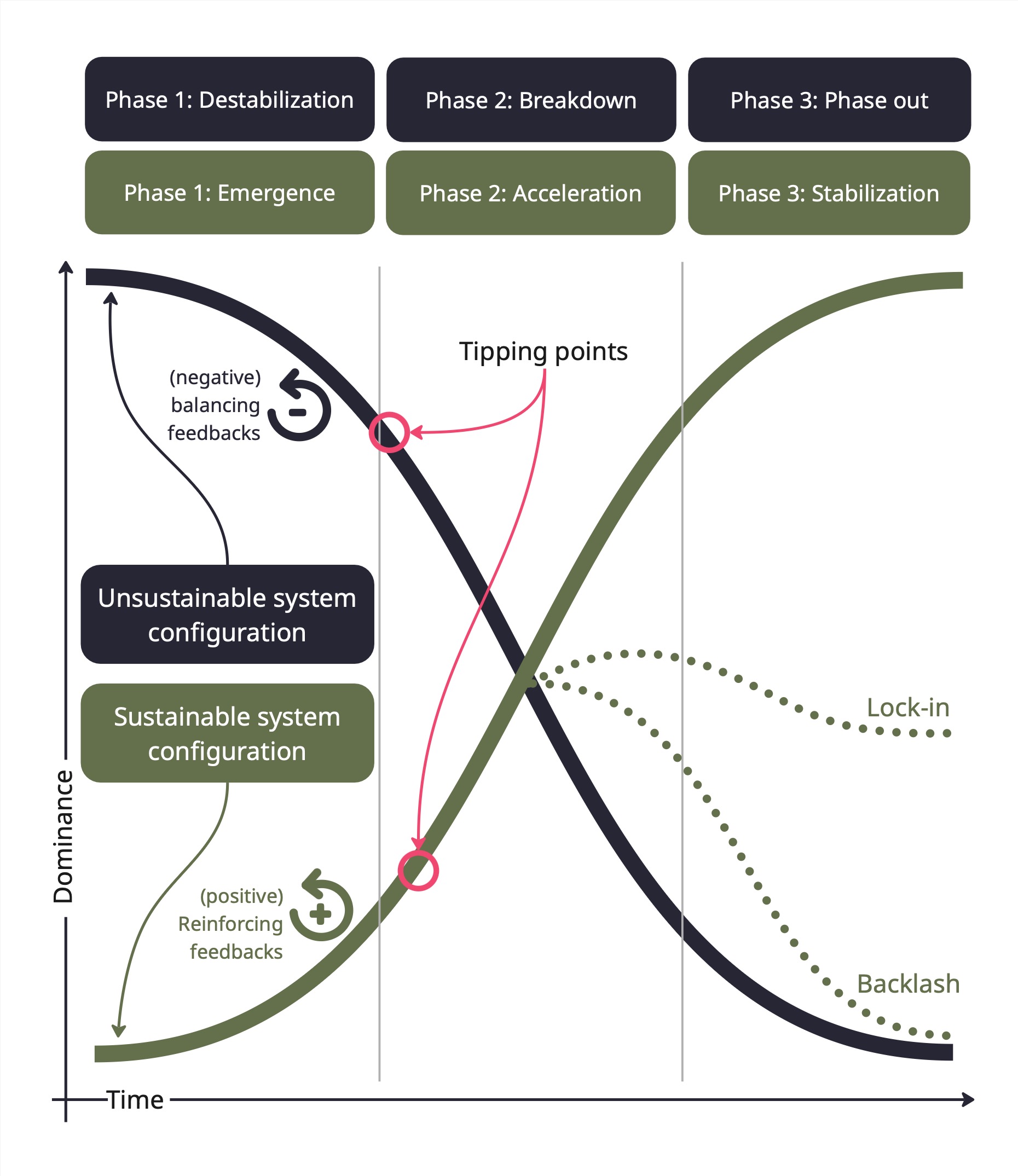
Systemic Research and Analysis


Strategy Development

Co-Creation and Facilitation

Design Delivery and Validation


The tangible outputs are seven interventions designed for exnovation in the protein transition within a university campus. They operate at multiple levels of the system: addressing behavioural mechanisms, strengthening relationships between actors, and tackling structural barriers identified in research. The focus was on creating conditions conducive to change rather than attempting to solve the transition outright.
- A central trade-off guided the project: I prioritised feasibility and coherence over immediate visibility, proposing interventions that may appear modest initially but could realistically be adopted and sustained. Several tensions remained unresolved, such as balancing emotional sensitivity with dominant behaviourist paradigms, and these informed the design decisions without being fully resolved.
- This project crystallised my understanding of how design can operate in complex transitions. It offered a first glimpse into navigating uncertainty, making decisions under incomplete knowledge, and leveraging design to create conditions for change. It reinforced that design in systemic contexts requires patience, judgment, and the ability to work with constraints, discomfort, and ambiguity.
- Overall, the work demonstrates my approach: building interventions grounded in insight, focusing on meaningful change over visibility, and using facilitation, framing, and judgment as core design tools rather than relying on prescriptive solutions.
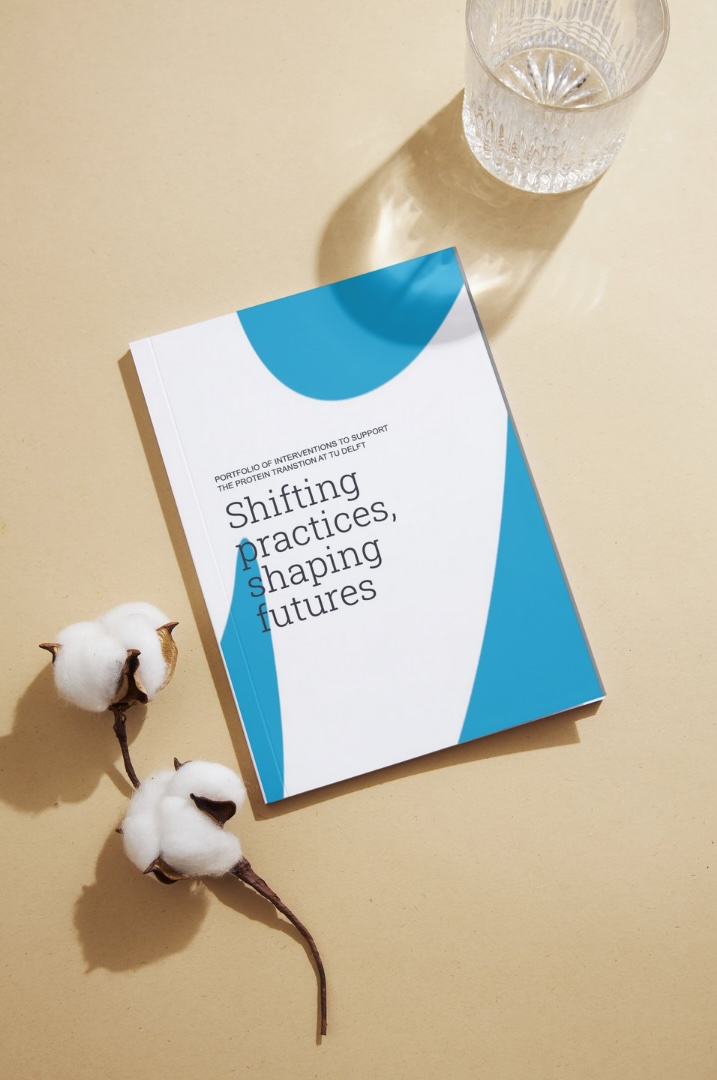

Project 2
NO WOMAN LEFT BEHIND: REDESIGNING MATERNAL AND NEWBORN CARE SERVICES
Professional Project — Design Research & Service Design
Multidisciplinary, international collaboration
Spring 2024
Context & Intent
During my internship at Design Innovation Group, I contributed to the formative research and service design work for Niger, Chad, and the Democratic Republic of Congo. The project centred women’s lived experiences while recognising the structural, cultural, and economic conditions shaping access to care. From the outset, I approached the work with caution and humility, aware that my role was not to interpret experiences through my own lens, but to support their careful and responsible translation into design inputs.
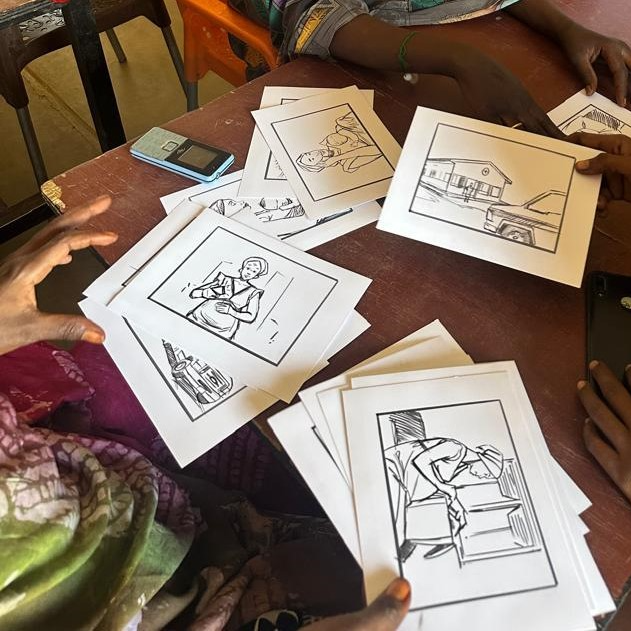
My Roles & Responsibilities
Research Synthesis and sensemaking
Service Design Artefacts
Facilitation support
I supported the preparation and facilitation of dry-run ideation sessions ahead of in-country workshops.
I helped defining the structure of activities and materials to ensure insights from women and healthcare providers remained central to the redesign process.
Outcome & Key Takeaways
The outputs of this project informed service redesign efforts aimed at improving maternal and newborn care pathways in fragile contexts. While the scope of the work could not address the deep rooted structural causes of inequality, it contributed to a more grounded and human understanding of where and how services fail women in critical moments.
- Working with testimonies of extreme vulnerability was emotionally demanding and, at times, confronting. It made the limits of design intervention tangible, and highlighted the ethical responsibility involved in translating suffering into abstract models and decisions. At the same time, contributing to work that sought to improve dignity, quality, and access, even incrementally, reinforced my commitment to careful, responsible service design in public and social sectors.
- This project strengthened my ability to collaborate across disciplines and cultures, work responsibly with partial data, and support decision making without over claiming certainty or impact.
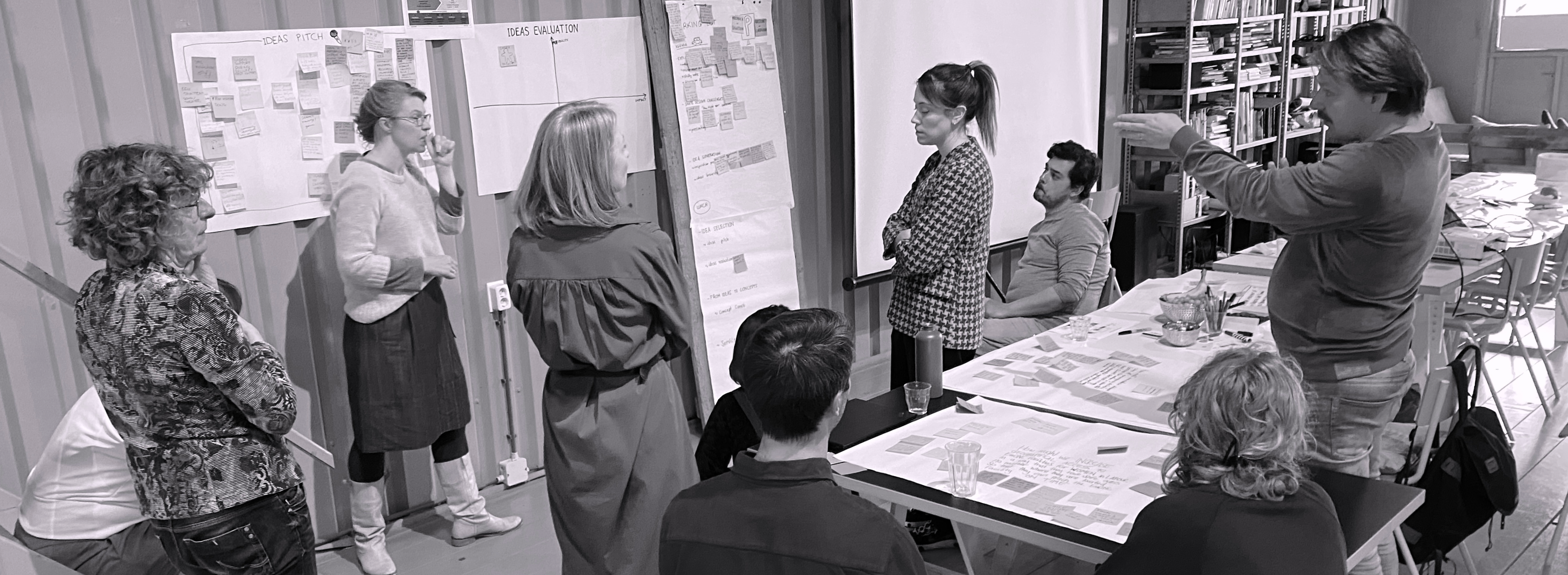
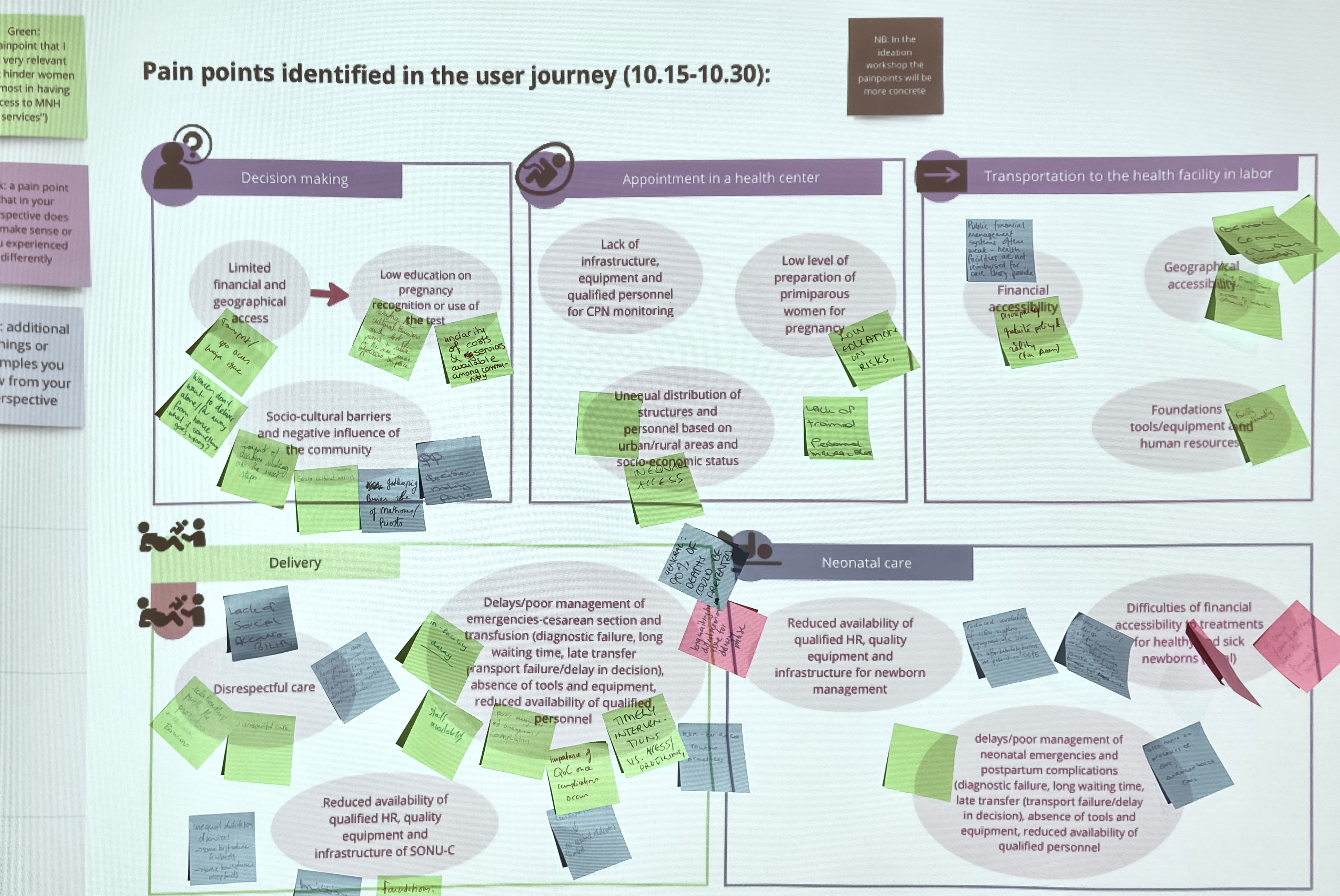
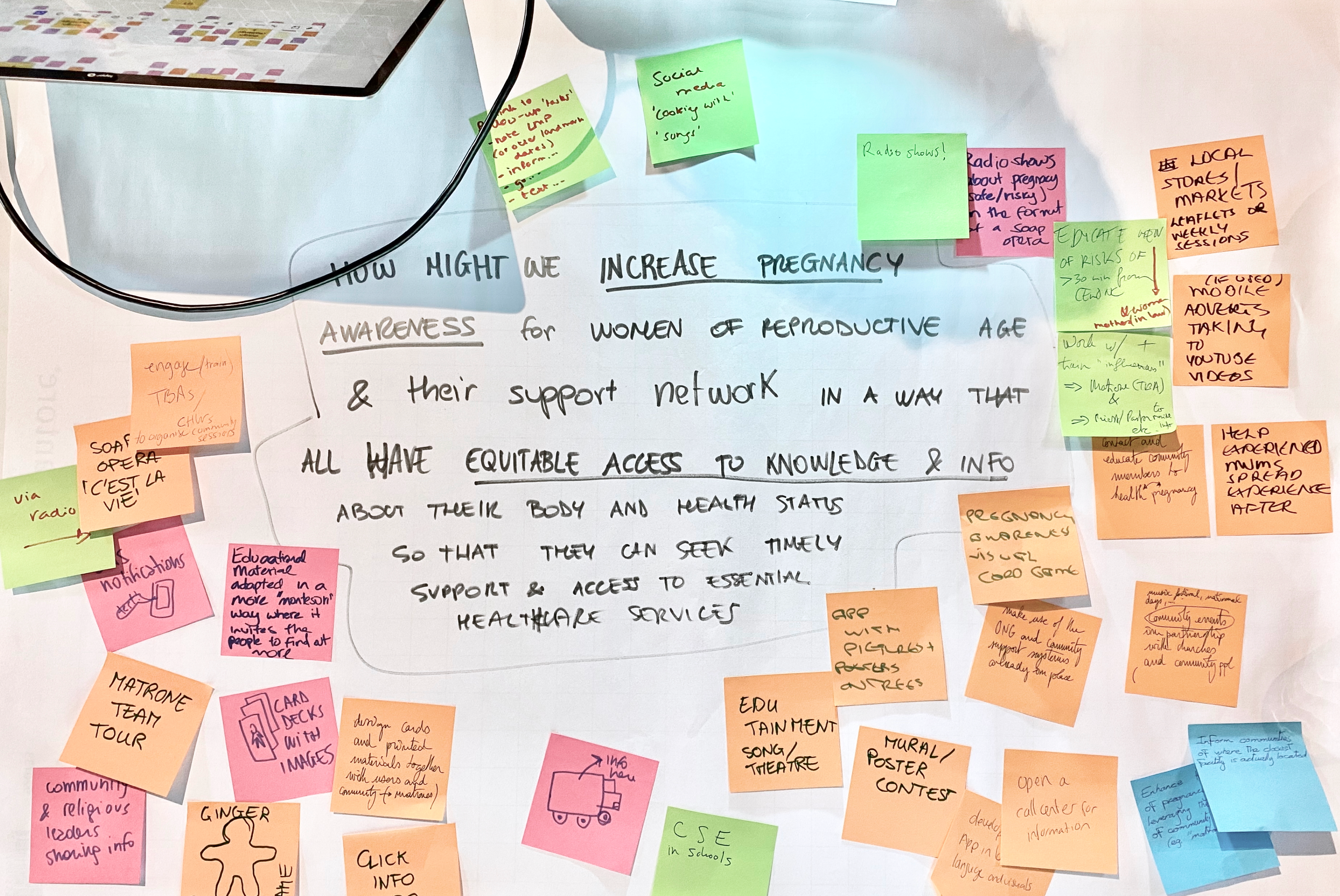
Project 3
INCREASING REPRESENTATION: FROM ALIENATION TO INTUITIVE ORGANISATIONAL INTERACTIONS
Academic Case Study — Strategic & Service Design
Team of 5
Fall 2023, 10 weeks
Context & Intent
Through research with employees across organisational levels, we reframed the challenge as a broader issue of organisational alienation. Rather than treating diversity and inclusion as isolated objectives, we examined how complexity, hierarchy, and rigid ways of working distance people from their work, from each other, and from the societal impact of their decisions.
My Roles & Responsibilities
STRATEGIC DIRECTION and future vision
Co-Creation and Facilitation
Outcome & Key Takeaways
The project resulted in a phased strategic proposal outlining how organisational change could begin within a protected environment and gradually expand. Rather than promising transformation at scale, the strategy acknowledged institutional inertia and positioned experimentation as a necessary first step.
- Working within a small innovation unit inside a large ministry made organisational resistance tangible. Existing ways of working, disciplinary homogeneity, and rigid output expectations constrained what could be proposed and how far ideas could be pushed. At the same time, the project demonstrated how strategic design can create space for reflection and gradual change even within highly bureaucratic contexts.
- This project strengthened my ability to challenge briefs, work collaboratively under ambiguity, and translate theory into strategic direction without losing sight of institutional realities.

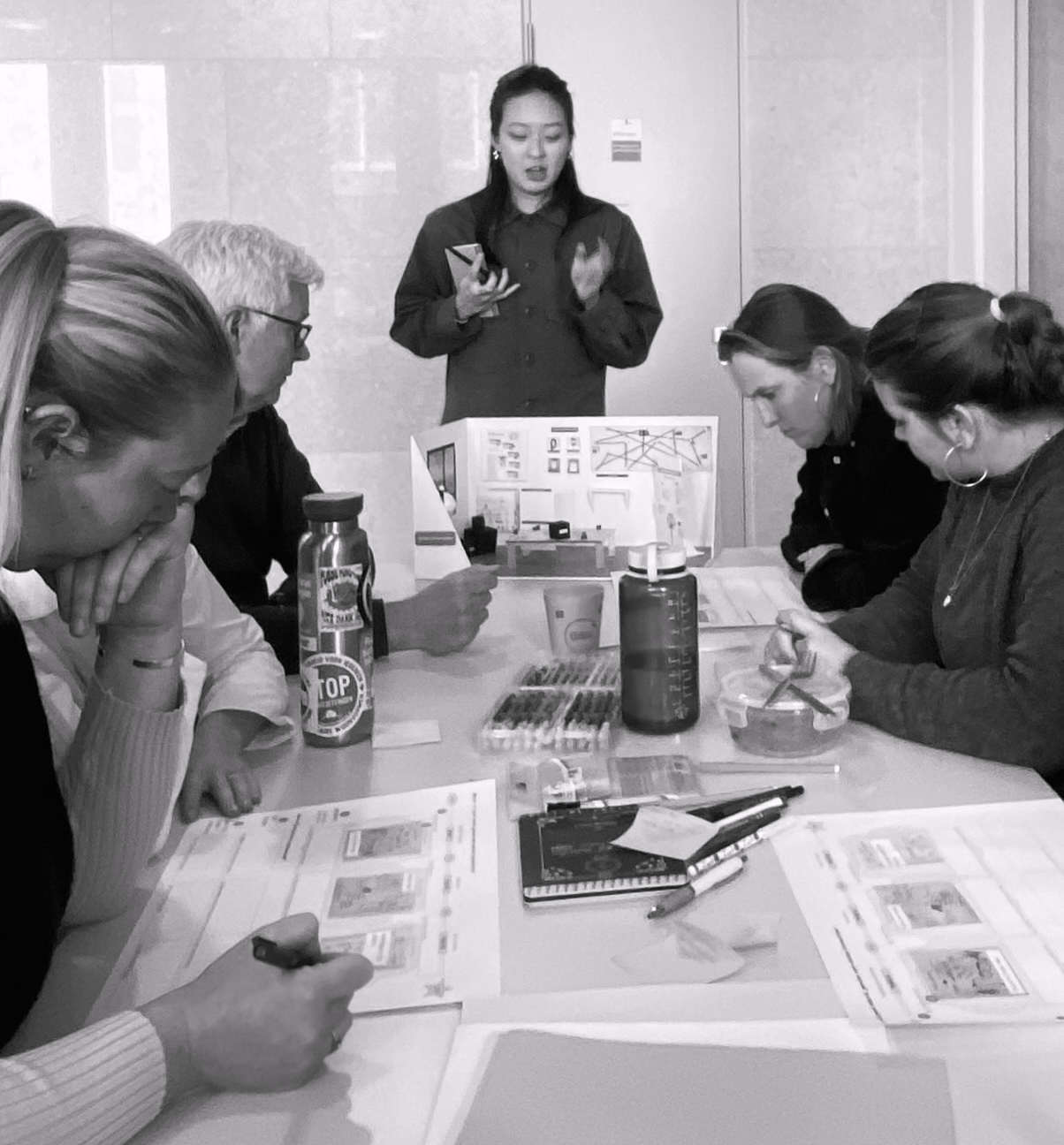

Project 4
Revitalizing Mooncup: From Individual to Community narrative
Academic Case Study — Strategic Design
Team of 5
Fall 2023, 4 weeks
Context & Intent
This speculative strategic design project explored how Mooncup, a brand historically associated with a single product, could be repositioned in a saturated and culturally sensitive market. Without a client brief, the project was an intellectual exercise in applying strategic design to a taboo laden context, using menstruation as a lens to rethink value beyond products.
Rather than focusing on incremental product innovation, we aimed to expand the conversation around menstruation from an individual and private issue to a collective and social one. The intent was to explore how design could support cultural reframing through narrative, community, and shared experience.

My Roles & Responsibilities
Strategic Exploration and Framing
Value proposition and narrative building
Concept Development and Storytelling
Outcome & Key Takeaways
The project demonstrated how strategic design can be used to reposition a brand by shifting the frame of value. By moving from an individual to a collective perspective, we explored how Mooncup could engage broader audiences and address societal taboos without relying on new product development.
- Feedback on the project highlighted both its strengths and its limits. While the narrative approach was seen as accessible and engaging, we were also challenged on the level of boldness in its application. In particular, focusing the concept within student environments was perceived as a safer choice compared to extending the conversation into professional contexts where taboos around menstruation are more deeply entrenched.
- This project reinforced my belief in storytelling as a powerful strategic tool. It showed how narrative can open space for dialogue on uncomfortable topics, while also underscoring the importance of consciously choosing where and how far to push a speculative proposal within limited time and scope.
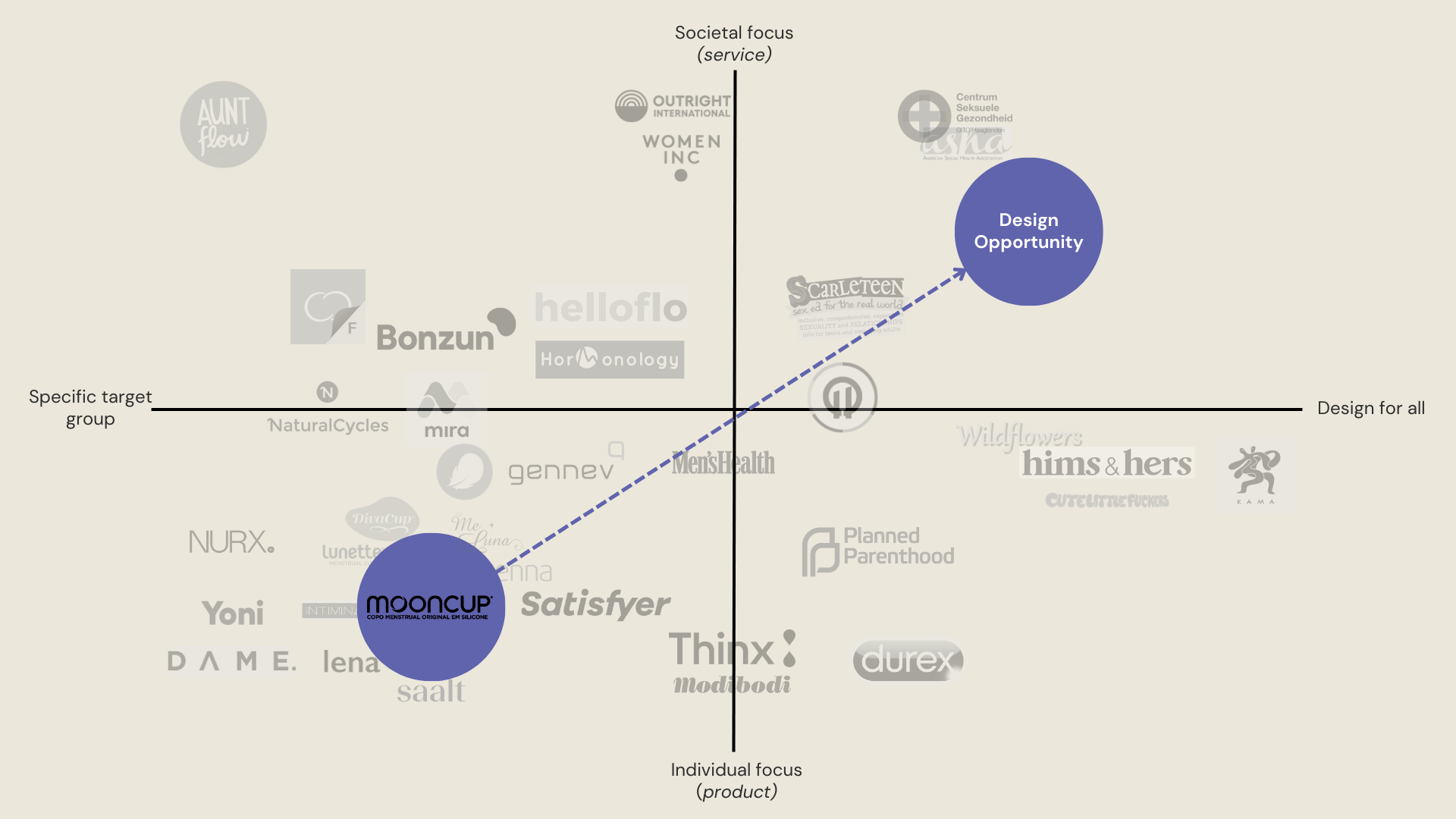
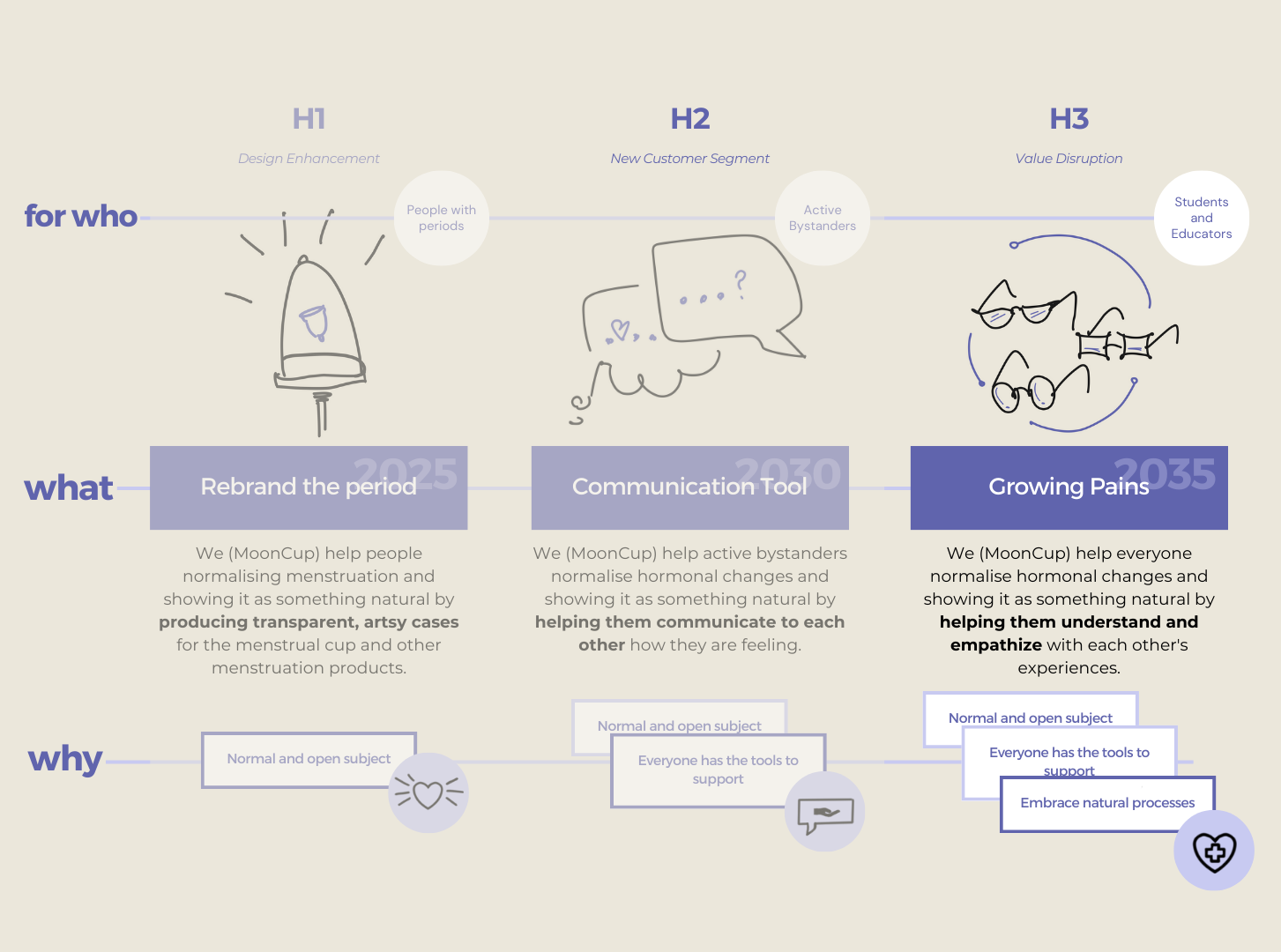

inés bernal / Made with 🤍 / 2026
contact via ines@inesbernal.com or Linkedin
